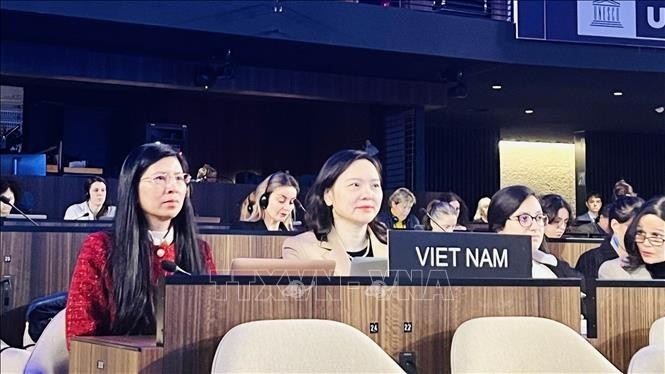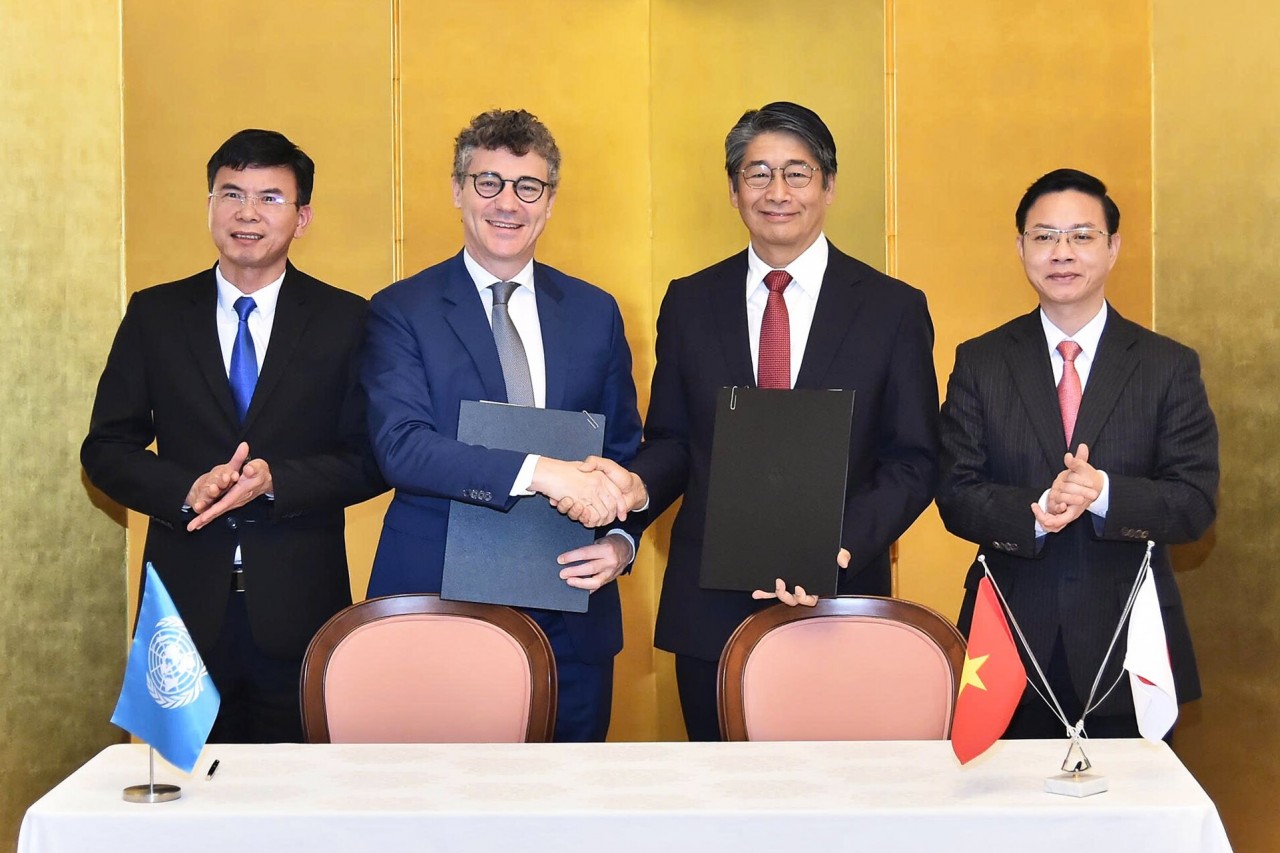Practices of Then Receive UNESCO Certificate
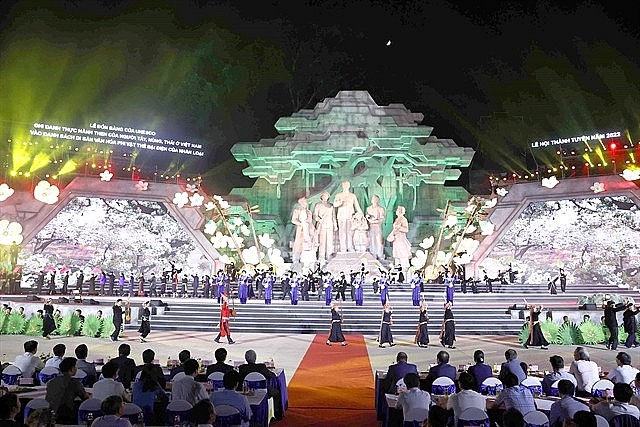 |
| An art performance at the ceremony. Photo: VNA |
The practices were officially inscribed on the UNESCO Representative List of the Intangible Cultural Heritage of Humanity in 2019, according to VietnamPlus.
Addressing the ceremony, President Nguyen Xuan Phuc affirmed the accreditation is a national brand that the world has reserved for Vietnam, thereby contributing to the introduction of special cultural heritages in the northern mountainous region to international friends and making this area more attractive to tourists.
It also helps ethnic communities in 11 localities housing the heritage understand more about Then’s value and come up with practical measures for its conservation and promotion in association with the growth of the tourism industry, the State leader said.
Highlighting the importance of preserving the heritage, he suggested the localities involved pay attention to building communications programmes, creating favourable conditions for Then artists to educate youngera generations, and collecting and publishing related ancient documents.
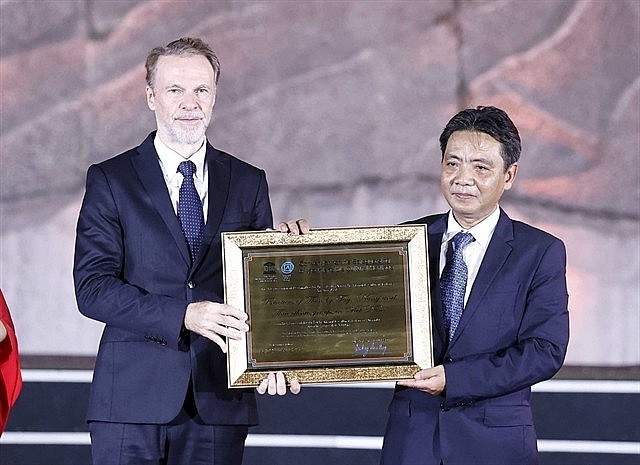 |
| UNESCO Representative to Vietnam Christian Manhart presents the UNESCO's Certificate recognising "Then practices of Tày, Nùng, and Thái people in Việt Nam" as an Intangible Cultural Heritage of Humanity to Deputy Minister of Culture, Sports and Tourism of Vietnam Hoang Dao Cuong. Photo: VNA |
According to UNESCO, Then, an essential ritual practice in the spiritual life of the Tay, Nung and Thai ethnic minority groups in Vietnam, reflects concepts about human beings, the natural world and the universe. Then ceremonies describe a journey in which the Then Master (male or female) controls ghost soldiers travelling from the earth realm to the heaven realm, to offer items of worship and present their prayers for peace, for treating illnesses, good crops, a happy new year, etc.
The Then Master starts the journey by singing and plucking a tính lute. Depending on the worshipping purposes, Then masters arrange worship trips to pray to different native Gods. Then masters use various items – such as a demon-expelling sword, a yin and yang rod, a bell, etc. – to perform ceremonies in the believer’s house, outdoors or at the Then alter of the Master’s house. The Master wears ceremonial dress, sings in the language of their ethnic group, plays the tính lute, shakes rattle-bells and waves a fan. Some ceremonies are accompanied by a female dancing group.
Then is always transmitted orally while its rituals are conducted, reflecting its succession between the generations, and Then Masters play a key role in passing on the related skills and know-how, with some conducting around 200 ceremonies a year.
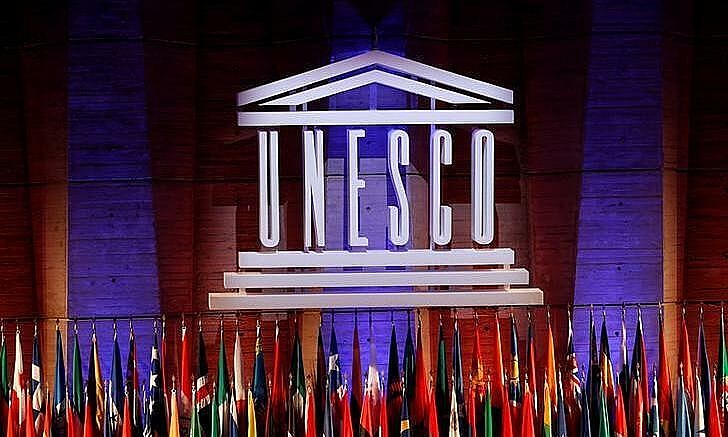 |
| The UNESCO logo is seen during the opening of the 39th session of the General Conference of the United Nations Educational, Scientific and Cultural Organization (UNESCO) at their headquarters in Paris, France, October 30, 2017. Photo: Reuters |
Earlier, Vietnam was elected to the Intergovernmental Committee for the Safeguarding of Intangible Cultural Heritage for the 2022-2026 term, making this the second time it has taken on the responsibility, Viet Nam News said.
The Intergovernmental Committee of the 2003 Convention, consisting of 24 members, is UNESCO's key executive body for protecting intangible cultural heritage. It is responsible for promoting and overseeing the implementation of the convention, and proposing measures for the safeguarding of intangible cultural heritage./.
| Vietnam has an array of Elements on the Lists of Intangible Cultural Heritage recognized by UNESCO, namely the Art of Xoe dance of the Thai people (recognized in 2021), Practices of Then by Tay, Nung, and Thai ethnic groups (2019), the art of Bai Choi in Central Region (2017), Xoan singing of Phu Tho Province (2019), Practices related to the Viet beliefs in the Mother Goddesses of Three Realms (2016), Tugging rituals and games (2015), Vi and Giam folk songs of Nghe Tinh (2014), Art of Don Ca Tai Tu music and song in southern region (2013), Worship of Hung Kings in Phu Tho (2012), Giong festival of Phu Dong and Soc temples (2010), Ca Tru singing (2009), Quan Ho Bac Ninh fork songs (2009), and Nha Nhac – Vietnam court music, and Space of gong culture (2008). |
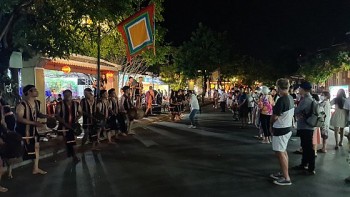 | Vietnam’s Cultural Heritage Space Underway in Hoi An An exhibition featuring Vietnam’s cultural heritage space is running in Hoi An ancient city from July 8 to 13 to welcome the 2022 National Tourism ... |
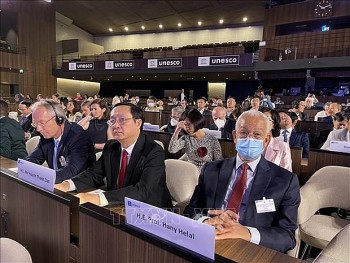 | Vietnam Strengthens Cooperation with WIPO, France and UNESCO Vietnam is committed to participating in the development of an inclusive, balanced and dynamic global intellectual property ecosystem, contributing to economic growth and sustainable development. |
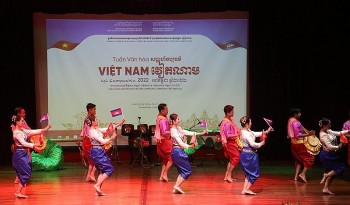 | Vietnam Culture Week Takes Place in Cambodia A special art program was held on the occasion of the 55th anniversary of the establishment of diplomatic relations with Vietnam -Cambodia and to celebrate ... |
Recommended
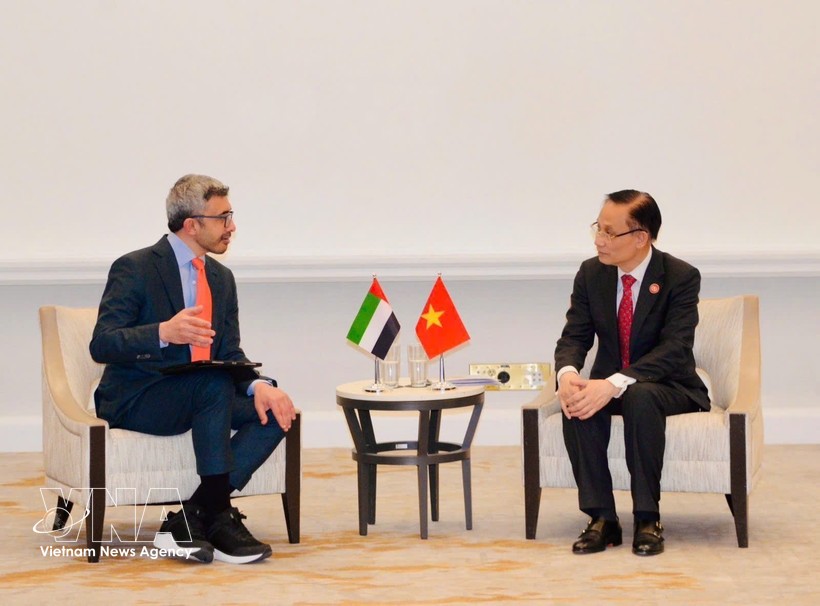 National
National
Vietnam News Today (Feb. 22): Vietnamese FM Meets Counterparts of UAE, Egypt and Türkiye
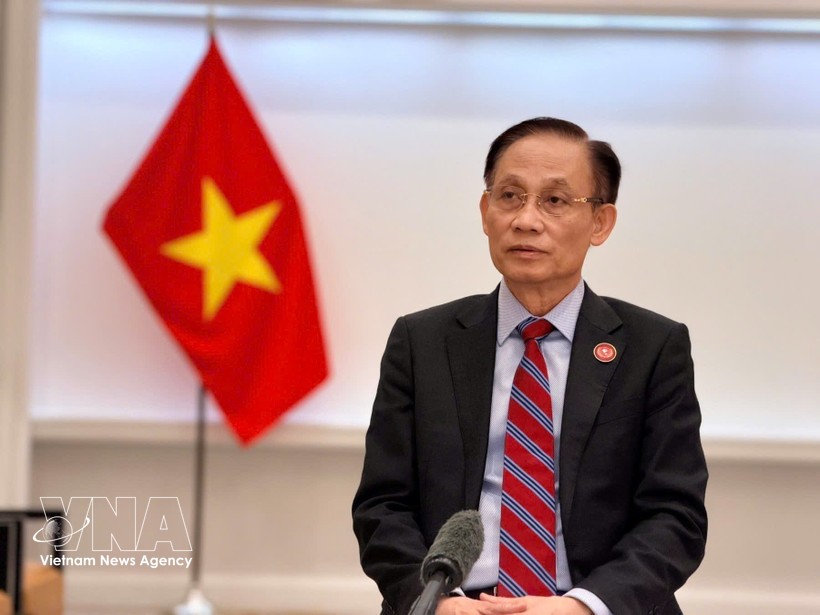 National
National
Party Chief’s US Trip Marks Milestone in High-level Multilateral Diplomacy: FM
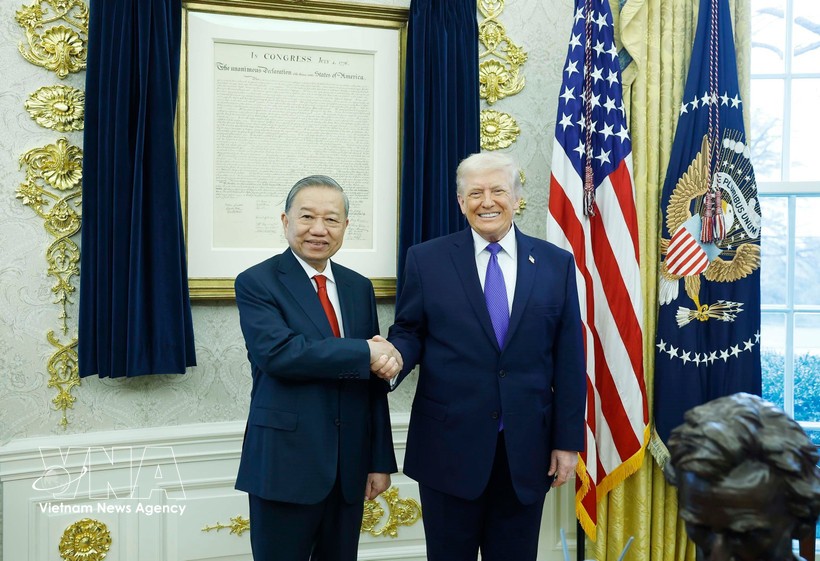 National
National
Party General Secretary To Lam Meets US President Donald Trump at White House
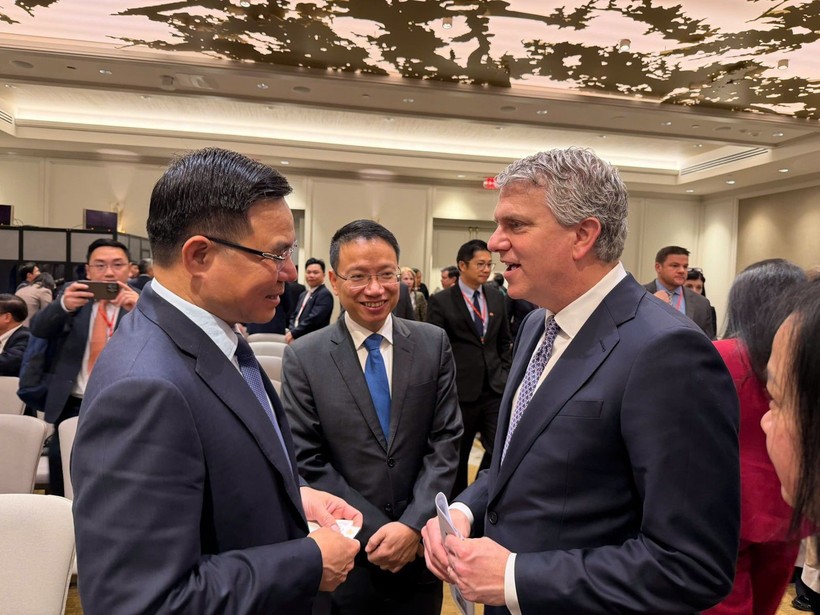 National
National
Vietnam News Today (Feb. 21): Vietnam, US Step Up Dialogue to Facilitate Trade Ties
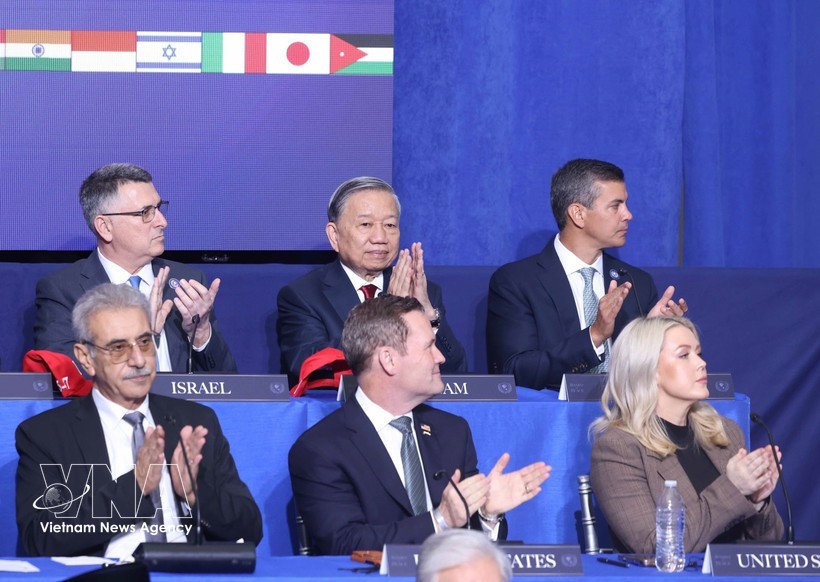 National
National
Party General Secretary To Lam Attends Inaugural Meeting of Gaza Board of Peace in US
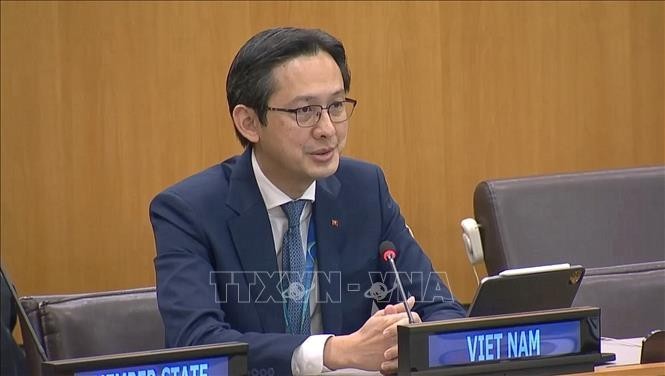 National
National
Vietnam Promotes Multilateral Dialogue on Nuclear Non-proliferation Ahead of the 2026 NPT Review Conference
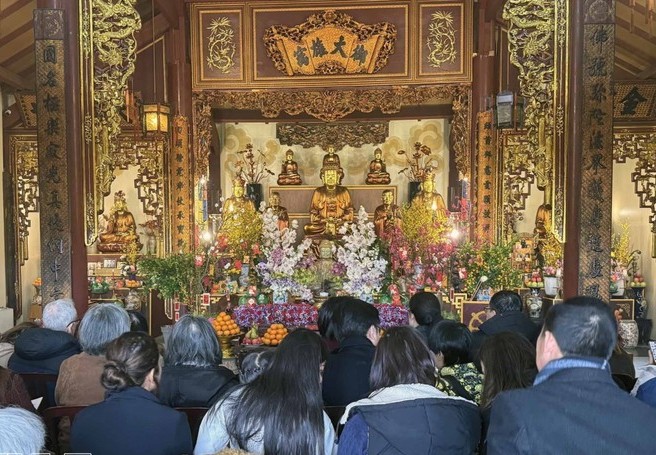 National
National
Vietnam News Today (Feb. 19): Vietnamese in France Cherish Traditional Practices During Tet
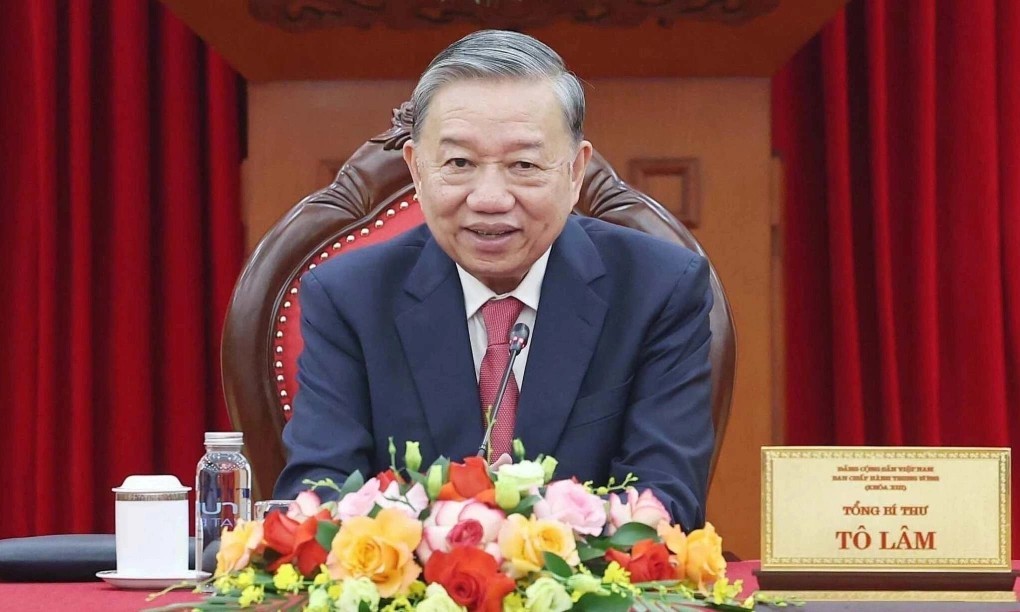 National
National

